Music 13
In the US anything goes against dissidents

In the US anything goes against dissidents
Any threat to the status quo of capital will cause all cannons to be used to quell the “rebellion”

The list of activists, musicians, managers and promoters who died in strange circumstances is enormous. One of those cases is that of John Lennon. Photo: BOB GRUEN/EMI
The list of activists, musicians, managers and promoters who died in strange circumstances is enormous. Jimi Hendrix died from a drug overdose when he was no longer a drug addict; John Lennon, Michael Jeffrey, Donald Rex Jackson, Elvis Presley, Buddy Holly, Otis Redding, Janis Joplin, Jim Morrison, Mama Cass, Keith Moon, John Bonham, Bob Marley and Sal Mineo make up an index of more than 50 artists killed in situations doubtful
Alex Constantine, in the book Covert War on Rock, states that “intelligence sectors responded to the anti-war and civil rights movements by carrying out a program of covert assassinations.”
Provocative elements infiltrated the main civil rights organizations of anti-war, student, youth, feminist and political minorities. Each and every one of those identified as enemies of the system was subjected to close surveillance.
They planted false stories; They launched apocryphal proclamations of a violent or racist nature; They used disinformation to hold events and meetings in which false addresses or double summons were sent, and the content of the letters was changed to create discontent and internal divisions among the members and activists of the groups.
The leaders were blackmailed, the leaders were constantly harassed, false groups were created with undercover agents to carry out actions that provoked rejection in the population. Nothing was left to chance.
In 1971, the Police and the National Guard, summoned by Ronald Reagan, then governor of California, forcibly repressed the students of the University of Berkeley, who, together with various volunteers, had built the People’s Park in 1969. The The park was razed and, on top of it, a multi-story car park was built, in an attempt to erase the symbol of unity and utopia from the imagination.
With similar purposes, woodstockmania was created, a big business that sold thousands of records; Rock entered the circuit, attempts were made to domesticate it, make it commercial. Long hair, jeans and sandals became fashionable.
Propaganda accentuated the negative side of the counterculture, sold the image of drug addiction, psychedelia, and alcoholism, distorting the essence of the anti-war fight, of the fight against racial discrimination, against the intolerance of the system. Everything was perfectly framed in sex, drugs and rock and roll.
The CIA and the FBI worked together to prevent, at all costs, the fusion of the Black Political Revolution and the White Cultural Revolution.
This entire gigantic apparatus of covert war was also going to be directed against revolutionary Cuba. The CIA would do everything possible to avoid meeting points between Cuban socialism and the American counterculture.
Source: Imperialism of the 21st century: The culture wars.
What Adele looks like now

What Adele looks like now and what her new album will bring us
The British diva is working on a new album, and has issued statements about her makeover and upcoming plans
Author: Juventud Rebelde|digital@juventudrebelde.cu
Posted: Saturday 09 October 2021 | 10:33:28 am.

Adele has posed for Vogue, as part of the promotion of her new album. Autor: Pictwitter Publicado: 09/10/2021 | 10:32 am
Translated and edited by Walter Lippmann for CubaNews.
British singer Adele has revealed details about the recording of her new album, 30, whose lyrics will be very attached to her divorce process and personal self-improvement, according to international media.
Adele, in addition to impressing with her renewed slim image, has confessed to several media that she became addicted to exercise several years ago and assured that all the diets that were invented using her image are false. It was physical activity that made her lose 45 kilos and she also talked about the role that her divorce played in her transformation.
The 33-year-old Brit recently starred on the cover of Vogue magazine and referred that exercise helped her fight an anxiety disorder.
“It was because of my anxiety. By exercising, I felt better. It was never about losing weight, it was always about getting strong and spending my time every day without my phone. I became pretty addicted. I exercise two or three times a day,” she revealed, Sputnik news quotes her as saying.
It has been almost six years since Adele released 25, her last studio album. Thus, her return to music has become one of the most celebrated events in the music industry so far this year.
“I feel like this album is self-destruction, then self-reflection and then sort of self-redemption. But I feel prepared. I really want people to hear my side of the story this time,” the singer has said.
(With information from Sputnik news and Vanguardia)
Palo Alto, an Unreleased Monk Album

Palo Alto, an Unreleased Album by Thelonious Monk Will be Presented on July 31
The musician is considered one of the revolutionaries and geniuses of post-World War II jazz music.
By Ricardo Alonso Venereo
July 29, 2020
Translated and edited by Walter Lippmann for CubaNews.
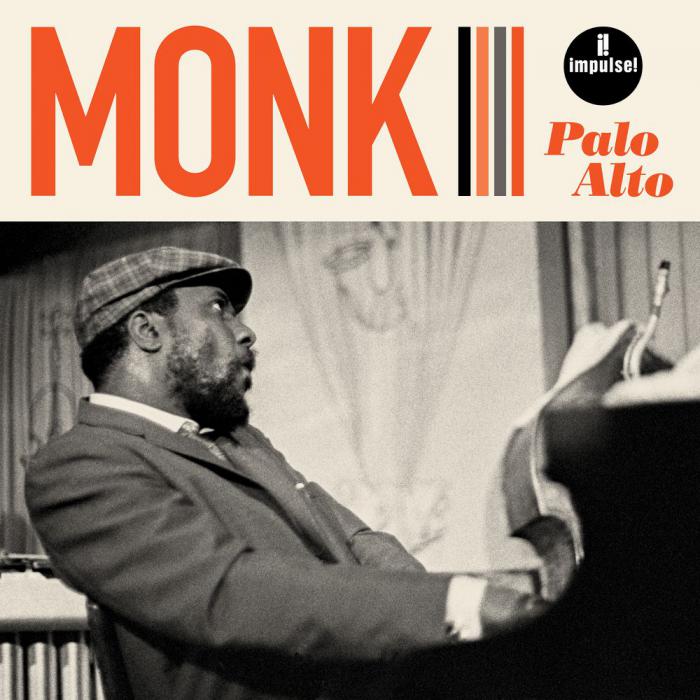
Album cover Photo: Taken from the Internet
Palo Alto, an unreleased album by American jazz pianist and composer Thelonious Monk (Rock Mounty, 1920 – Weehawken, 1982) will be presented next July 31, on digital platforms, 52 years after his songs were actually recorded in a concert that the artist gave in 1968 in a high school in the city of Palo Alto, California, which at the time, helped “temporarily unite a city divided by racism.”
Coincidentally, the release of the album, which under the label ¡Impulse! Universal Music, will also be released on CD and vinyl. (The latter in a special edition that will include a replica of the original poster and handheld program.). It had been scheduled to be released before the current epidemiological situation in the world. It serves to show us today how identical some things are to 1968, the year of the assassination of Black leader Martin Luther King and when racial conflicts between whites and Blacks stirred up American society at the time.
“With Palo Alto, Monk’s music once again becomes balm for a wounded society that resists understanding that we all vibrate to the same beat and rhythm,” says the important Californian cultural promoter Danny Scher, This album is largely due to the current atmosphere in that country as a result of the death of the African-American George Floyd.
“The performance is one of the best recordings I’ve ever heard of Thelonious,” said T.S. Monk, son of the star, after listening to the recording that,15 years ago ,Danny Scher found, and which he put in his hands through saxophonist Jimmy Heath. He was one of the greats of the be-bop era, after he finished producing an unreleased album by Monk and Coltrane at Carnegie Hall in 2005.
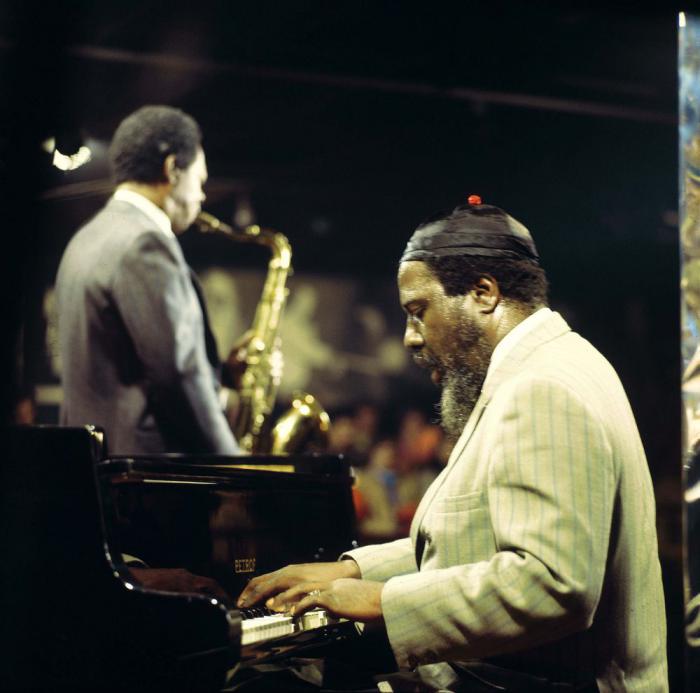
The pianist with tenor saxophone Charlie Rouse, one of the members of his quartet Photo: Taken from the Internet
Although it is acknowledged that Monk’s best performances have always been live, it is also stated that there are numerous documented concerts and tours of the pianist, which are of great value and this recording is an example of this. Here the band really sounds very relaxed and inspired, but also because this era of Monk in concert is not particularly documented, which makes this album the last official live performance of Monk’s classic quartet with Charlie Rouse, Larry Gales and Ben Riley.
It is claimed that when this concert took place the group had just recorded the legendary album Underground and the band’s days were about to come to an end, but in 1968 they were still sounding full of life, starting with Charlie Rouse, who plays superb solos in this concert. Gales and Riley also shine with their own light. And, of course, Monk, who among other pearls leaves here a version of Don’t Blame Me, truly anthological.
Other themes collected in Palo Alto are Don’t Blame Me and Ruby My Dear; the dynamic and lively Well You Needn’t, at 13 minutes and with solos by all the components or the abrupt end with Rudy Vallée’s classic: I Love You (Sweetheart of All My Dreams).
The magnificent human story behind this album, only 47 minutes long, is profusely detailed in the excellent notes signed by Monk’s biographer, Robin G. Kelley.
Thelonious Monk is considered one of the revolutionaries and geniuses of post-World War II jazz music.
How Cecilia Valdés Calms Italy

How Cecilia Valdés Calms Italy
Cuban lyric singer Diana Rosa Cárdenas Alfonso, who lives in a region of Lombardy, relieved her neighbors who live in quarantine because of the COVID-19
By Lisandra Gómez Guerra
March 18, 2020
Translated and edited by Walter Lippmann for CubaNews.

Cuban lyric singer Diana Rosa Cardenas Alfonso, resident in a region of Lombardy, relieved with art her neighbors who live in quarantine by COVID-19 Author: Facebook Posted: 18/03/2020 | 09:47 pm
Mantua Lombardy, Italy; 6:00 p.m., March 13, 2020. Only silence breaks the area bordered by buildings. Only a few people walk at a brisk pace around a supermarket. A few others shyly take in the last rays of sunshine from their balconies. They have been confined within four walls for too many hours and there are still many others to come. No one speaks. The afternoon seems the same, for more than a week now.
Suddenly, a sound light forces them to look outside. A miracle! Maybe they thought. But, the close neighbors came out grateful to enjoy a real show. From a small balcony, Cuba embraces the pain and sadness of hundreds of Italians who live day by day a duel with the coronavirus. Thank you, Cecilia Valdés, for so much spirituality. Thank you, Diana Rosa Cárdenas Alfonso, Cuban lyric singer living in Mantua, region of Lombardy, one of the Italian areas most affected by the coronavirus, for alleviating despair.
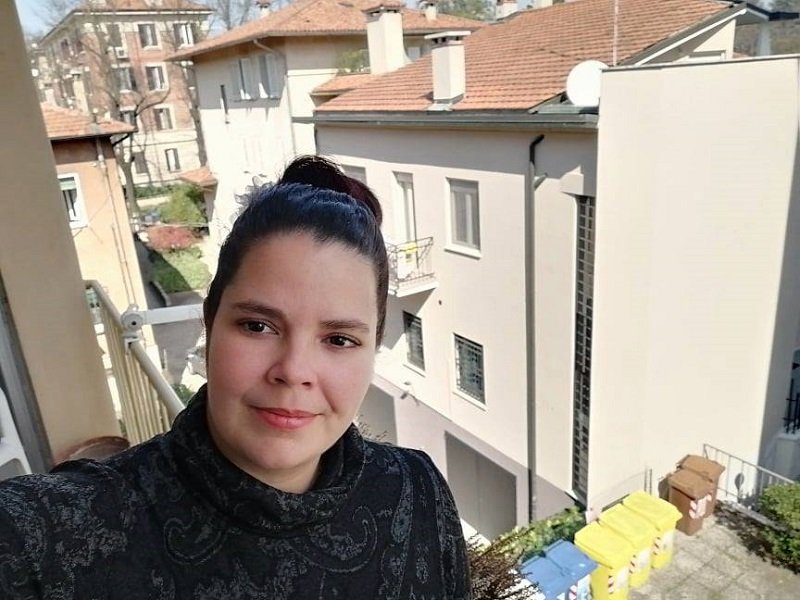 “If we chose to be artists it’s because we decided to make people aware. Art always helps. In a moment as complex as this one, it reaches a greater transcendence because it touches inside. That’s why we can feel alive, even if everything around you is dying. We will always remember that moment because it has united us as human beings,” Diana Rosa tells Juventud Rebelde via messenger, an application that erases the thousands of miles between her and this island.
“If we chose to be artists it’s because we decided to make people aware. Art always helps. In a moment as complex as this one, it reaches a greater transcendence because it touches inside. That’s why we can feel alive, even if everything around you is dying. We will always remember that moment because it has united us as human beings,” Diana Rosa tells Juventud Rebelde via messenger, an application that erases the thousands of miles between her and this island.
That Friday afternoon, she did not hesitate to accept the flashmob (a call to a large group of people to do something unusual) from every balcony, through social networks, an initiative that spread as quickly as the coronavirus itself. She went out to the small space of her apartment. Dressed in a black coat, red pyjamas, socks and flip-flops to get around the little cold air that has yet to leave Mantua, she rose up on the improvised stage.

She turned on the horns and raised her voice. On one side, her husband immortalized the moment, in a video that went viral in a few hours on several social networks. On the other, Marilu, her cat, watched it with pleasure. All around, little by little, spectators and many ovations joined in.
“They were super happy. They applauded me a lot. They shouted at me that if I needed an audience after everything was over, I should call them. The salespeople at the supermarket, where they have not banned sales because of the need for the service, shouted “You are brave,” says the 30-year-old young woman from Havana, her voice broken by so much emotion.
And although Diana Rosa, since her arrival in Italy in 2013 – one of her dreams for having opera as a genre with deep roots there – to perfect what she learned in the teaching unit of the National Lyric Theater of the Amadeo Roldan Conservatory, has made several of its stages her own, she still finds the experience difficult to digest.
“We went out to check if anyone else was doing anything and nothing happened. So, we said, let’s do it. It was very improvised, it was even half-disheveled. And it’s not the custom here to do that. I even live in a region where people are not as expressive as those who live in southern Italy. That’s why I never imagined singing on the balcony. Of course, at home I do, so my closest neighbors know I’m a lyrical singer,” says the woman who alternates presentations, after passing the auditions, with classes in lyrical and modern singing.
But the departure of Gonzalo Roig’s zarzuela was not the only thing that calmed Mantua’s life: “I also performed some operas from this country, such as Turandot. And two days later, I did a duet with my Japanese neighbor, each from her home, and we sang Mozart’s The Marriage of Figaro. That time, even my kitten joined in with her meows,” she adds, while a smile cuts off communication.
-Why Cecilia Valdés?
-Since I was a child I’ve had a strong bond with that work. My mother used to sing it to me, although she didn’t study lyrics. I played it in Cuba and here I did my thesis at the Lucio Campaniani Music Conservatory on the three Cuban zarzuelas: Cecilia Valdés, María la O and Amalia Batista.
“I am very grateful for my training in our country, especially to my teacher Adolfo Casas, for having instilled in me love and respect for that repertoire. Cecilia Valdés wastes Cuba, not only for her text, but for mixing so many rhythms. If I am Cuban, how can I not give away our art in such a complex moment?
-How much of Cecilia, as a true Creole, is there in Diana?
-I think a lot, because in reality when she says she doesn’t know what it is to suffer, that’s what characterizes us Cubans. We always put on a happy face in moments of sadness and problems. We face everything with a lot of dignity. Cecilia is Cuba.
-Why do you think that interpretation has gone around the world?
-First, I never imagined that it would happen. But it must have something to do with the fact that I gave away a song that belongs to me for being Cuban. I am happy to have awakened so many feelings, solidarity, brotherhood…, although it was in such a sad situation as the one we lived in and we will not forget.
“I have received hundreds of compliments and messages of love. Even a friend told me he saw me on Brazilian television. That response teaches us that we are capable of feeling and loving even in difficult times. But many are the artists who have done the same, and thanks to the networks we can enjoy them”.
For more than a week, Diana Rosa has barely passed the perimeters of her apartment due to a measure adopted by the Italian government to prevent the spread of the pandemic. “When I go out, just for a medical emergency or to buy food or medicine, I wear a mask, gloves, glasses. When I come back I take everything off, wash it and put my coat and shoes on to get some air and sun.
“I wash my hands constantly and inform myself. I maintain links with the Facebook page of the Cuban Embassy in Italy and my mom calls me every day. They are worried about us over there, but we are fine,” says the woman who inherited her passion for music from her baritone grandfather and his father, who, without any academic training, mastered the chords of the guitar.
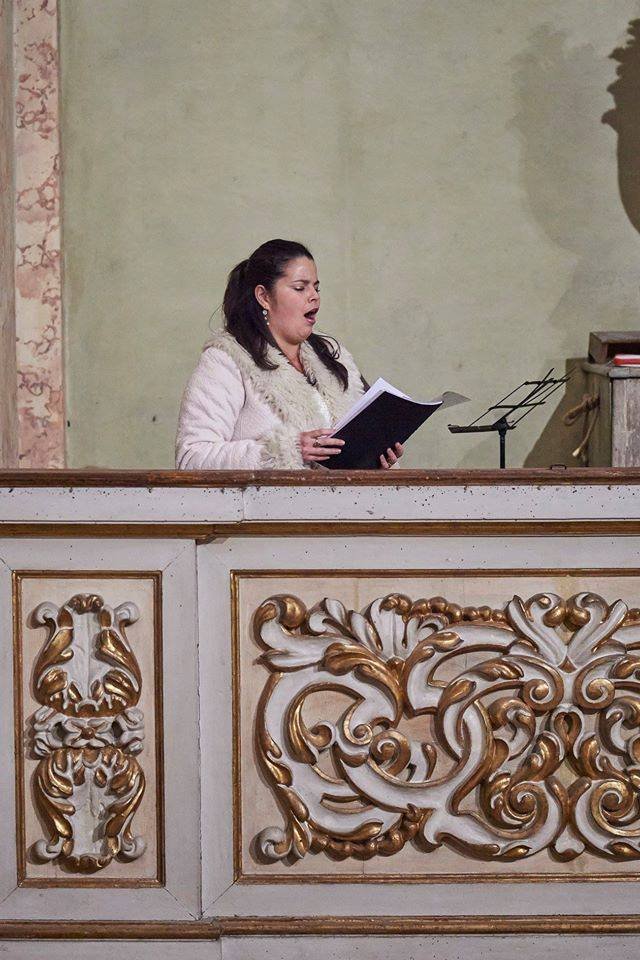
-In your opinion, why has the coronavirus been so strong in Italy?
-I suppose it’s because at the beginning they didn’t take the measures of restriction that should have been demanded. It’s a virus that spreads quickly and you can have it and be asymptomatic. That’s why any measure is insufficient,” she insists whenever someone asks about the health of the Old Continent.
And while Italy, like many parts of the world, continues to be trapped by the tentacles of a virus that is bent on stealing thousands of lives, Diana Rosa thinks about how to dispel the annoying silence that surrounds her.
“Some artist friends have asked me why I did it, as if when everything happens no one will remember. I don’t care if that happens. Sometimes a single moment is enough to realize so many good things. I experienced that that afternoon and I will continue to live it from my balcony, at least until we are free of this situation,” she concluded.
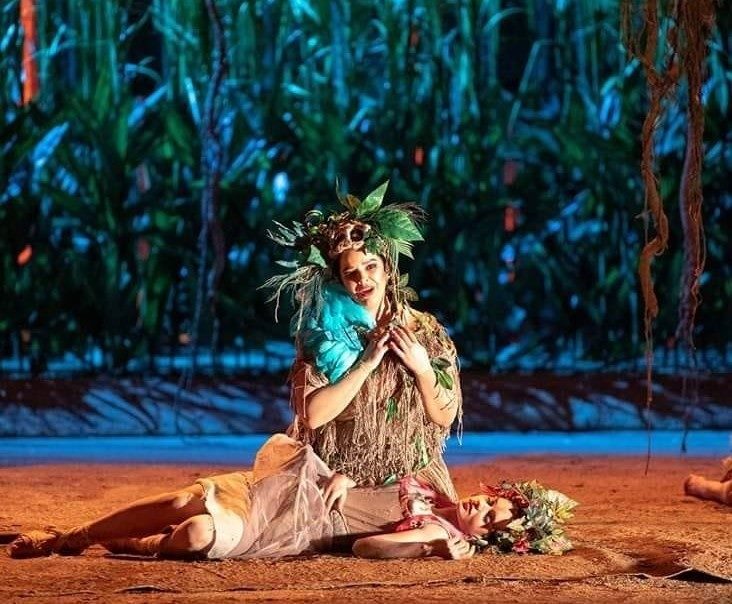
You can also listen to the interview on our podcast
Aretha Franklin

Aretha Franklin, the Great Queen of Soul, has died
August 16, 2018
Translated and edited by Walter Lippmann for CubaNews.
Aretha Franklin won 44 nominations, 18 Grammys and 75 million records sold
The diva from Memphis had been fighting cancer for years.
Franklin still had time to make one last record, A Brand New Me.
She went on to replace Luciano Pavarotti at the 1998 Grammy Awards.
There are few black voices left of the old guard. One of the most imposing ones has departed. Perhaps the most recognizable, the one that became immense by singing Respect and that had the pleasure of finishing off the work with other unforgettable melodies such as Natural Woman, I Say a Little Prayer or Chain of Fools, a church voice that made the leap into the commercial arena and that, after 44 nominations, 18 Grammys and 75 million records sold all over the world, became the first woman to access the Rock and Roll Hall of Fame, a year before The Beatles. The queen of soul, the eternal Aretha Franklin, has passed away. She was 76 years old.
Aretha Franklin’s representative confirmed to the Associated Press that the queen of soul had died Tuesday at her home in Detroit. On Sunday, information began to circulate about the singer’s admission to a hospital in Detroit, the city where she lived. It was said that she was in an extremely serious condition and that she was surrounded by her closest family and friends, as a clear sign of her impending end.
The Memphis diva had been struggling with cancer for years – even though she had never officially recognized it – and last year announced that she was retiring from show business for good. “This will be my last year. I’ll be recording, but this will be my last year of concerts. That’s all,” she said in an interview in 2017
“I feel very enriched and satisfied with where my career comes from and where it is.
All this after she was forced to cancel a series of concerts during the summer and could not be at a jazz festival in New Orleans. “Aretha Franklin has been ordered by her doctor to stay off the road (because of the music tours) and rest completely for the next two months,” the singer’s team announced in a statement in March.
Elton John will be able to brag about getting her on stage one last time. She was in November in New York to raise funds for the fight against AIDS. And former President Barack Obama was able to count on the strength of her voice at the 2009 presidential inauguration, in one of her most notable and remembered public events in her homeland. She did the same with Jimmy Carter and Bill Clinton, as well as singing at Martin Luther King’s funeral.
Despite her health problems – for decades she had to deal with obesity and alcoholism – Franklin still had time to record one last album, A Brand New Me, a compilation of her most important songs, although this time with the collaboration of the Royal Philharmonic Orchestra of London and the voice of a much more mature Franklin.
“Having the opportunity to work with that voice on this project has been the greatest honor and hearing a symphony orchestra involve these performances is impressive,” said producer Nick Patrick after releasing the album in November last year.
Is This What Young People Are Into?

Is This What Young People Are Into?
March 2, 2018
 By Leslie Díaz Monserrat.
By Leslie Díaz Monserrat.
Degree in Journalism (2011). Instructor teacher at the Central University.
Honorable Mention in the Provincial Prize for Scientific Journalism.
Translated and edited by Walter Lippmann for CubaNews.

Now that little walking loudspeakers are playing –or not playing– music in the city, it is quite common to listen to songs such as Mayores, where Becky G with Bad Bunny unhappily come together.
Some teenagers walk down the street with the song loud and clear, while the lyrics can be heard in the young woman’s loud voice:
I like older men/ Those who you call gentlemen/ Those who open the door/ And send you flowers.
Up to that point, everything is perfect, because the age difference doesn’t have to be an impediment to love, it can even have its charms. The problem is when the other stanza comes with a refrain like this:
I like them bigger / so they don’t fit in my mouth…
And yes, you don’t need to blow your imagination away. It’s just what you’re thinking.
With the arrival of Trap, direct and unadorned sex has become an essential element to sell and accompanies the music videos of this musical subgenre, as some people call it. The truth is that I have no category where to place it.
In the clip of Mayores, the singer appears dressed in the costume of a sadomasochistic porn star. Sitting on a sofa, she opens her legs, in a pose with a marked sexual charge, with gestures that, more than sensual, are coarse, with little class…
It is not about giving a moralistic reading to the clip. Well-created human sensuality can and has been one of the most exquisite edges of art. But of course, the artistic completely removes vulgarity and the justly vulgar, that’s what Becky G look like.
On the other hand, the nefarious Bad Bunny appears using a jargon of a young alpha male talking about his powers in bed, in the style that, with him, there is no need for toys. How sweet!
The video, where dark tones reign and imitate the life of a nightclub, returns to a story in the style of the delinquents Bonnie and Clyde, because, in the end, they cheat the old man, but not before leaving him handcuffed to the bed.
It’s amazing that it’s the women, us, who make this type of artist’s popularity fatter? who sells a stereotyped, silly, insipid image of intimacy.
Becky G and Bad Bunny are the ones who shape your musical taste and, in turn, become a reference point on how to dress and act. That would be fatal.
Cabalgando con Fidel – English lyrics

Cabalgando con Fidel
[Riding with Fidel] by Raúl Torres
Song composed by Raúl Torres
Author: Raúl Torres | Internet@granma.cu
December 1, 2016 02:12:10
A CubaNews translation. Edited by Walter Lippmann.
They say these days
Camilo and Marti have been seen
Riding along on Revolution Square.
And that leading the caravan
Slowly trots a riderless horse
For you.
Open are the wounds that never heal
Of the men and women
who will never let you go.
Today our hearts beat in that square
It hurts so, but your people
do not want to see you go.
Man: the grateful ones are with you.
We shall all miss your great deeds.
Even Death cannot believe it took you.
Man: we learned to know you’d be eternal.
Just as Olofi and Jesus Christ,
There is not a single altar without a light for you.
Today I don’t want to call you, Comandante;
nor ‘barbudo’ nor ‘gigante’.
Or everything I know of you.
Today I want to shout “father of mine”
Do not let go of my hand
I still cannot walk without you.
Man: the grateful ones are with you.
We shall all miss your great deeds.
Even Death cannot believe it took you.
Man: we learned to know you’d be eternal.
Just as Olofi and Jesus Christ,
There is not a single altar without a light for you.
Man: the grateful ones are with you.
We shall all miss your great deeds.
Even Death cannot believe it took you.
Man: we learned to know you’d be eternal.
Just as Olofi and Jesus Christ,
There is not a single altar without a light for you.
They say that the square this morning,
Is completely full of horses,
Coming from far beyond.
A desperate crowd
of heroes with wings on their backs
Who have gathered there.
And leading the caravan
Slowly trots a riderless horse
For you.
Raúl Torres
———————————————————–
Cabalgando con Fidel (+Video)
Canción compuesta por Raúl Torres
Autor: Raúl Torres | internet@granma.cu
1 de diciembre de 2016 02:12:10
Dicen que en la plaza en estos días
se le ha visto cabalgar
a Camilo y a Martí.
Y delante de la caravana
lentamente sin jinete,
un caballo para ti.
Vuelven las heridas que no sanan
de los hombres y mujeres
que no te dejaremos ir.
Hoy el corazón nos late afuera
y tu pueblo aunque le duela
no te quiere despedir.
Hombre, los agradecidos te acompañan
Cómo anhelaremos tus hazañas.
Ni la muerte cree que se apoderó de ti.
Hombre, aprendimos a saberte eterno.
Así como Olofi y Jesucristo,
no hay un solo altar sin una luz por ti.
Hoy no quiero decirte, Comandante,
ni barbudo, ni gigante
todo lo que sé de ti.
Hoy quiero gritarte «padre mío»,
no te sueltes de mi mano,
aún no sé andar bien sin ti.
Hombre, los agradecidos te acompañan.
Cómo anhelaremos tus hazañas.
Ni la muerte cree que se apoderó de ti.
Hombre, aprendimos a saberte eterno.
Así como Olofi y Jesucristo,
no hay un solo altar sin una luz por ti.
Hombre, los agradecidos te acompañan.
Cómo anhelaremos tus hazañas.
Ni la muerte cree que se apoderó de ti.
Hombre, aprendimos a saberte eterno.
Así como Olofi y Jesucristo.
No hay un solo altar sin una luz por ti.
Dicen que en la plaza esta mañana,
ya no caben más corceles
llegando de otro confín.
Una multitud desesperada
de héroes de espaldas aladas
que se han dado cita aquí.
Y delante de la caravana
lentamente sin jinete,
un caballo para ti.
Llorando en Miami…
Llorando en Miami…
A CubaNews translation.
Edited by Walter Lippmann.
Ladies & gentleman, now from Cuba
what’s up with Cuba why do we wanna do it in English for
say it in Spanish HELLO !
Tell me, how you’ve been, if you have found happiness
Tell me how are you doing? I’m doing fine
what’s up with you? Charanga Habanera !
they say she’s feeling OK that Miami is madness,
but she misses Havana, gossip and ‘sabrosura’
they say she has money, the car she always dreamed of
but she can’t find in Miami , what she left behind in Havana!
Let me tell you what happened to me
I loved her so, but she upped and go!
Lachy! she wanted to be famous, she wanted to win a Grammy
and so she went to try her luck in a plane for Miami
(David ) hey chacal (jackal)….. I heard you
they say she’s feeling OK that Miami is madness,
but she misses Havana, gossip and ‘sabrosura’
they say she has money, the car she always dreamed of
but she can’t find in Miami , what she left behind in Havana!
lies, lies
(rap by chacal …………)
what’s the point in crying
you left, now you suffer, there is no two ways about it
What are you doing with micky mouse if who you like is elpidio valdes?
audi for me,…..
I don’t want to pretend , I eat minced meat and I am happy
(rap chacal …………)
(Dantes) And now she calls me crying, saying she can’t find her way
that she’s not happy, that she misses everything Cuban
she misses the Van Van , Hectico and PMM
she misses the Charanga , and the man she wants
(Randy mc) I keep on charangueando the way I like
You’re crying in Miami, and I’m living it up in Havana
You’re crying in Miami, and I’m living it up in Havana
she’s sad because they don’t have the Capri or Tropicana
You’re crying in Miami, and I’m living it up in Havana
She misses Mi Habana Tu and the Bucanero she drank
You’re crying in Miami, and I’m living it up in Havana
For how long? When will it end?
if you act like a Yuma, you have to leave
For how long? When will it end?
if you act like a Yuma, you have to go
go, go, go
if you act like a Yuma, you have to go
go, go, go
if you act like a Yuma, you have to go
She speaks to me in English and I don’t understand
if you act like a Yuma, you have to go
Ready, let’s live it up!
Everybody raise their hands
let’s sing it!
Tell me, how you’ve been, if you have found happiness
Tell me how are you doing? I’m doing fine
How you doing over there?
Tell me, how you’ve been, if you have found happiness
Tell me how are you doing? I’m doing fine
How you doing over there?
(El Chacal ) hey baby, I keep doing what I’m doing and I won’t give it up
that’s why I am who I am, and I do what I like, what I fucking want!
From the barracks pavel, frank dos metra , respect me,
do it so you can learn,
this is for you to enjoy not for you to criticize
ok, ok, what do you want bread for, if I have coffee cake
Did you get it?
Notes on a letter to Victor Jara
REBELION
Notes on a letter to Victor Jara published by Rebelión
Our message to the world
By Carole Fernández Martínez
September 24, 2009
A CubaNews translation.
Edited by Walter Lippmann.
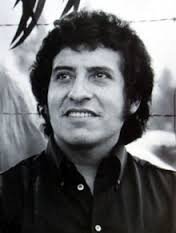
I have known and admired Victor Jara’s songs since I was a little girl. “Plegaria a un labrador” (Prayer to a farmer), “El alma llena de banderas” (A soul full of flags), “Las casitas del barrio alto” (The houses of the rich neighborhoods), “Ni chicha ni limoná”(Nor ‘chicha’ nor lemonade) and many other songs of his will always be a part of my personal patrimony and my singing arsenal, because of their messages and for their extraordinary quality.
At the same time, I was invited to be part of the Cuban team that helped organize the Peace without Borders Concert last Sunday September 20. From my point of view, what happened that day at the Revolution Square was transcendent for Cuba, for our young people and for our country’s image in the world.
I was there; I felt the public, for the most part young people, vibrate. It was neither a trivial neither a hysterical mass of people. They knew all that had happened in Miami, the pressure they had put on Juanes, the acts of barbarism and fascism to force him to cancel the project. When they shouted “Cuba, Cuba, Cuba”, with the public’s commitment to the success of the concert, we sent our message to the world.
For all these reasons, the “Letter to Victor Jara” written by Carlos Alberto Ruiz published today in Rebellion particularly irritated me. Although I have always written on topics of my specialty, I feel compelled to comment on it, on the cultural policies of my country, and with judgments of a different character that appear in it.
As a musicologist, I know perfectly well where the so-called entertainment industry is going, how banality is cultivated by it. They manufacture and promote false idols at a global level. Nobody has to give us lessons on that. I also know how hard Cuban musical institutions try to intelligently counteract the influence on our young people of those frivolous and commercial currents flooding the planet today.
Although we are under its permanent influence, we work daily to promote talent. And, to establish the authentic artistic hierarchies of all times, of Cuba and of the world. Thanks to this, ours is one of the very few countries in which the people prefer their own music.
It was moving to be at the Square when a million youths sang “Ojala” with Silvio Rodríguez, or with Danny Rivera, “Your Town is My Town”, and with Amaury Pérez “Hacerte Venir” (Make You Come to Me). It was great to dance with them to the rhythm of the anthological potpourri 70s songs of Los Van Van. It closed to the music of Compay Segundo’s “Chan Chan”, intoning verses of Jose Marti. It was the most moving and intense moment in the concert and a homage to our roots, to our traditional music, to the ideas of Jose Marti, to our culture, to what we have been and to what we will continue to be as Cubans.
Without a doubt, not everything we listened to there had the same artistic level. Some of these moments will be ephemeral; but most of them will remain in the minds and souls of all Cubans: those that were there and those that enjoyed the show on television.
Carlos Alberto Ruiz reminds us how in this superficial world a pseudo culture without marrow and forgetfulness is being imposed. He dares to confront Victor Jara’s image to Cuba today. Our country has never ceased to promote Victor Jara’s songs, thought and example. Among the first transcriptions made of his compositions, we find those made by Cuban teacher Jesus Ortega, published in 1978 in Boletinmúsica of Casa de las Americas called Victor Jara Speaks and Sings.
The “International Meeting against Terrorism, for Truth and Justice” was an historical event, presided over by Fidel the whole time. It was held in Havana, in June 2005. More than 600 intellectuals, artists, social fighters and political leaders of 60 countries participated. This event culminated with a beautiful and very moving homage to Victor at the Karl Marx Theater. To an overflowing public, figures of the revolutionary song of several Latin American countries paid tribute to him with their art.
In the 2007 edition of Cubadisco, the main Cuban musical event, Victor Jara was paid tribute and received, as he deserves, the Prize of Honor. This event was widely broadcast to our people. In their colloquy, dedicated in that occasion to the “necessary Song” (as expressed by Alí Primera), topics like alternative discography and the strategy to take songs with social content and commitment to the large masses were discussed. From these discussions the idea of creating a discography label called ALBA (Dawn) arose. This was recently approved by the summit of the countries that integrate it, and it was decided that among the first productions they would include an anthology of Victor Jara’s songs.
Last year, Professor Leo Brouwer organized it and directed in Havana the “Victor Jara in memoriam: 35 years later” concert. It included the premiere of two pieces composed by Professor Leo for this concert: “Variations on a Victor Jara theme for guitar” and “Elegy to Victor Jara”. Important groups and soloists from Cuba and Latin America also participated in this concert.
All these years, Cuba has published in disks, cassettes and cds all the recordings of Victor’s concerts in Cuba. The most recent edition was made by Casa de las Americas (the recordings of a concert Victor offered in that emblematic institution on March 1972). It was presented in February this year, at the International Book Fair dedicated to Chile, in the collection “Music of this America”. The cd’s of that same collection Hasta Siempre and Che querido, also in that Fair, were presented as a tribute to the Heroic Guerilla by different Latin American singers. Also Victor’s CD Compañero Presidente, with songs from Silvio, Pablo and other singers dedicated to Salvador Allende.
The magazine Boletinmúsica ode Casa de las Americas dedicated a number in dedicated to the 1967 Protest Song Meeting 40 years after its celebration. In that edition, there is a special dossier, “Victor Jara in us”, dedicated to his life and his example. Thereis also a Leonardo Acosta article on a book in remembrance of Alí Primera and interviews to Daniel Viglietti, Caesar Isela, Pancho Villa, Ricardo Darts and other figures of different generations that cultivate protest songs in our region.
The list of actions that Cuban institutions and artists promote against the tyranny of the market having Victor Jara as a reference figure of an art divorced from commercial concessions could be endless. It would be enough to go through the digital publications of institutions like Casa de las Americas (www.casadelasamericas.org) , Center Pablo de la Torriente Brau (www.centropablo.cult.cu) , the magazine Clave of the Cuban Music Institute (www.clave.icm.cu) , La Jiribilla ( www.lajiribilla.cu ) or CUBARTE webpage (www.cubarte.cult.cu ) to understand the real meaning of our cultural policy and how far are we from promoting banality.
I had the privilege from the beginning of knowing how this concert’s project originated, supported without hesitation by some of Cuba’s exceptional creators, who belong not only to the vanguard of our culture, but also to that of the Spanish-speaking world. They have nothing to do with the aesthetics of some of the artists that visited us and who don’t need these types of actions for their professional promotion. They have an enormous prestige among our people and with other countries’ public. They participated simply because they understood the meaning this concert would have for Cuba.
This morning, I was proud to read that Fidel in his reflections, characterized the concert “Peace without Borders” as extraordinary, and he finished saying: “The Cuban people, especially Cuba’s magnificent young people, demonstrated yesterday that even in the midst of a brutal economic blockade it is possible to conquer unimaginable obstacles.”
Once again, like in these past fifty years, Fidel put facts in their proper place.
Although I read Fidel’s book Peace in Colombia with a lot of interest , I don’t know the history of that country in detail neither do I feel I’m prepared to forward an opinion on it. Much less, can I speak about how they perceive Juanes politically there. What I do know is the history of my homeland and the principles that guide it. I know that, like Victor Jara, revolutionary Cubans will know how to defend our dignity and our principles.
“Strange Fruit”, the song that Rebecca Ferguson wants to sing at the Trump ceremony
- English
- Español

“Strange Fruit”, the song that Rebecca Ferguson wants to sing at the Trump ceremony
A CubaNews translation.
Edited by Walter Lippmann.

Singing “Strange Fruit” was Rebecca Ferguson’s condition for performing at the inauguration ceremony of Donald Trump, attended by six religious leaders including a Catholic cardinal, a rabbi, a Hispanic clergyman and a woman.
The artist wrote in her Twitter account that she would only accept the invitation of the president-elect “if you allow me to sing” Strange Fruit “a song that has an enormous historical importance, a song that was blacklist of the United States for being too controversial.
A song that speaks to all the black people despised and trampled in the United States. “
This theme was originally performed by Billie Holiday, but the lyrics are a poem by Abel Meeropol inspired by the historical photograph showing the lynching of two African Americans, Thomas Shipp and Abram Smith, in 1930 in downtown Marion, Indiana.

Thomas Shipp and Abram Smith, in 1930 in downtown Marion, Indiana.
Abel Meeropol was a Jewish professor of Russian origin affiliated to the Communist Party of the United States. He saw this photo of the lynchings that, according to his testimony, followed him all day and did not let him sleep. Then he wrote the poem Bitter Fruit, which he published under the pseudonym Lewis Allan in the New York Teacher and the New Masses. Later he wrote music the poem in the song Strange Fruit. Meeropol is also known for having adopted the children of Ethel and Julius Rosenberg, after they were executed in the United States.
The song became famous in the voice of legendary jazz music Billie Holiday in 1939, and then was sung by Nina Simone. Holiday once said that when he first sang “Strange Fruit” at a New York café, she surprised the audience.
“There was not even a clap when I finished,” he wrote later in his autobiography. “Then a lonely person began to applaud nervously. Suddenly everyone applauded.”
Andrea Bocelli, Elton John, Céline Dion, country singer Garth Brooks are among the artists who have turned down the invitation to participate in the January 20 inauguration event. Even Kanye West, who has publicly supported the president-elect, has said no.
In contrast, Beyoncé sang the American anthem four years ago at the reelection ceremony of Barack Obama, Kelly Clarkson and James Taylor acted after the oath. Alicia Keys, Marc Anthony and Brad Paisley were at the official celebration in Washington.
Rebecca Ferguson ends her response to Trump reminding him that “Strange Fruit” is a song that recalls how love is the only thing that will conquer all hatred in this world, so I will gladly accept your invitation and see you in Washington.
The lyrics of Strange fruit has only three deep and mournful stanzas:
Strange Fruit
Southern trees bear a strange fruit,
Blood on the leaves and blood at the root,
Black bodies swinging in the southern breeze,
Strange fruit hanging from the poplar trees.
Pastoral scene of the gallant south,
The bulging eyes and the twisted mouth,
Scent of magnolias, sweet and fresh,
Then the sudden smell of burning flesh.
Here is fruit for the crows to pluck,
For the rain to gather, for the wind to suck,
For the sun to rot, for the trees to drop,
Here is a strange and bitter crop.
Listen to Nina Simone performing “Strange Fruit” with Spanish subtitles

“Fruta extraña”, la canción que quiere cantar Rebecca Ferguson en la ceremonia de Trump

Rebecca Ferguson. Cantar “Strange Fruit” fue la condición de Rebecca Ferguson para actuar en la ceremonia de investidura de Donald Trump, a la que asistirán seis líderes religiosos incluidos un cardenal católico, un rabino, un clérigo hispano y una mujer. La artista escribió en su cuenta de Twitter que solo aceptaría la invitación del presidente electo “si me permites cantar “Strange Fruit” una canción que tiene una enorme importancia histórica, una canción que estuvo en la lista negra de Estados Unidos por ser demasiado polémica. Una canción que habla a todas las personas negras despreciadas y pisoteadas en Estados Unidos”.
https://twitter.com/julianbovis/status/816212016981491712/photo/1
Este tema fue originalmente interpretado por Billie Holiday, pero la letra es un poema de Abel Meeropol inspirado en la histórica fotografía que muestra el linchamiento de dos afroamericanos,  Thomas Shipp y Abram Smith, en 1930 en el centro de Marion, Indiana.
Thomas Shipp y Abram Smith, en 1930 en el centro de Marion, Indiana.
Abel Meeropol era un profesor judío de origen ruso afiliado al Partido Comunista de los Estados Unidos. Vio esta foto de los linchamientos que según su testimonio le persiguió durante todo el día y no le dejó dormir. Entonces escribió el poema Bitter Fruit, que publicó bajo el seudónimo de Lewis Allan en la revista New York Teacher y en el diario New Masses. Más tarde musicalizó el poema en la canción Strange Fruit. Meeropol es conocido también por haber sido quien adoptó a los hijos de Ethel y Julius Rosenberg, tras se ejecutados en Estados Unidos.
La canción se hizo famosa en la voz de la legendaria música de jazz Billie Holiday en 1939, y luego cantada por Nina Simone. Holiday dijo una vez que cuando cantó por primera vez “Strange Fruit” en un café de Nueva York, sorprendió al público. “No había ni siquiera un aplauso cuando terminé”, escribió más tarde en su autobiografía. “Entonces una persona solitaria comenzó a aplaudir nerviosamente. De repente todos aplaudieron”. Andrea Bocelli, Elton John, Céline Dion, el cantante country Garth Brooks son algunos de los artistas que han rechazado la invitación de participar en el evento de posesión del próximo 20 de enero. Hasta Kaney West, quien ha apoyado públicamente al presidente electo, dijo que no.
En contraste, Beyoncé cantó el himno de Estados Unidos hace cuatro años en la ceremonia de reelección de Barack Obama, Kelly Clarkson y James Taylor actuaron después del juramento. Alicia Keys, Marc Anthony y Brad Paisley estuvieron durante la celebración oficial en Washington.
Rebecca Ferguson finaliza su respuesta a Trump recordando que “Stranger fruit” “es una canción que recuerda cómo el amor es la única cosa que conquistará todo el odio en este mundo, entonces aceptaré de buena gana su invitación y lo veré en Washington”.
La letra de Strange fruit tiene solo tres estrofas, profundas, dolientes:“De los árboles del sur cuelga una fruta extraña. /Sangre en las hojas, y sangre en la raíz. /Cuerpos negros balanceándose en la brisa sureña. / Extraña fruta cuelga de los álamos./Escena pastoral del valiente sur. / Los ojos saltones y la boca retorcida. / Aroma de las magnolias, dulce y fresco. / Y el repentino olor a carne quemada. Aquí está la fruta para que la arranquen los cuervos. / Para que la lluvia la tome, para que el viento la aspire, para que el sol la pudra, para que los árboles lo dejen caer./ Esta es una extraña y amarga cosecha”.
La letra original en inglés es la siguiente:
Strange Fruit
Southern trees bear a strange fruit,
Blood on the leaves and blood at the root,
Black bodies swinging in the southern breeze,
Strange fruit hanging from the poplar trees.
Pastoral scene of the gallant south,
The bulging eyes and the twisted mouth,
Scent of magnolias, sweet and fresh,
Then the sudden smell of burning flesh.
Here is fruit for the crows to pluck,
For the rain to gather,
for the wind to suck,
For the sun to rot,
for the trees to drop,
Here is a strange and bitter crop.
Subscribe to Blog via Email
| M | T | W | T | F | S | S |
|---|---|---|---|---|---|---|
| 1 | 2 | 3 | 4 | 5 | 6 | |
| 7 | 8 | 9 | 10 | 11 | 12 | 13 |
| 14 | 15 | 16 | 17 | 18 | 19 | 20 |
| 21 | 22 | 23 | 24 | 25 | 26 | 27 |
| 28 | 29 | 30 | ||||

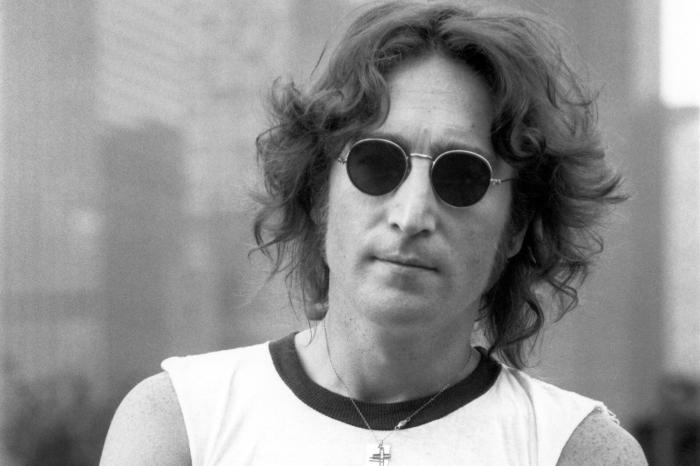
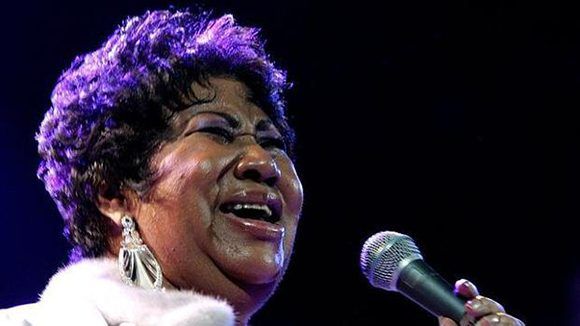
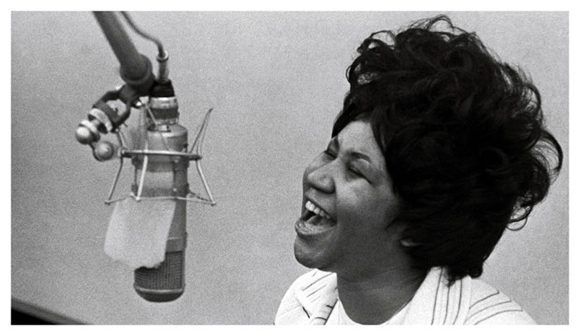
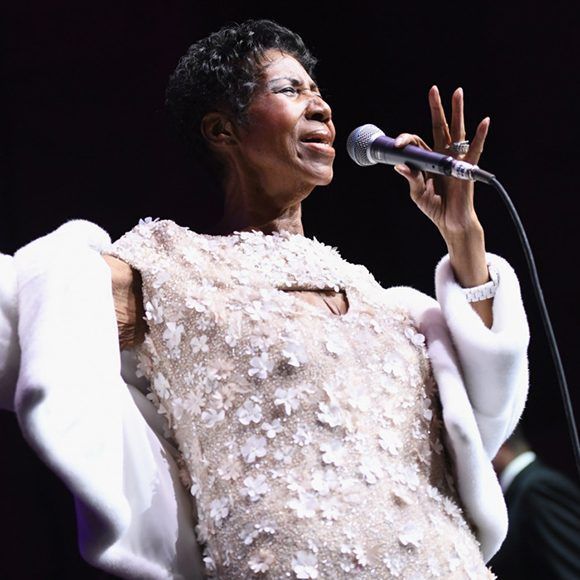

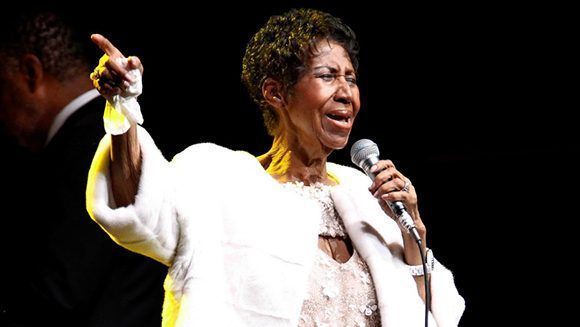

You must be logged in to post a comment.